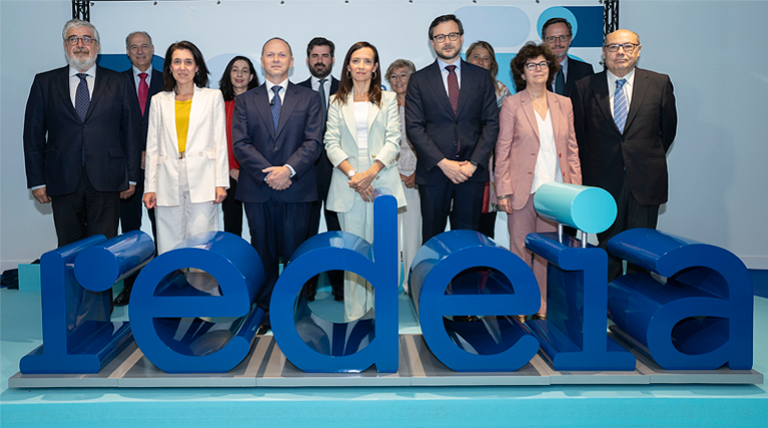We are a global operator of essential infrastructure
- Applications to measure CO2 or control ocean acidification are among the projects up for competition, as well as ideas to decarbonise the electricity network or run towns entirely on wind and solar power
- Students from Granada, Málaga, Cantabria, Girona, Castellón, Guadalajara, Valla-dolid, La Rioja, Las Palmas, and Madrid provinces compose this group
- The winners' projects will be showcased at the Redeia Sustainability Conference in Madrid in October
The first RedeSTEAM competition, which was organised by Redeia (formerly Red Eléctrica Group) in partnership with Power to Code, attracted 100 female students in their third year of ESO. Its goal was to inspire young girls to pursue careers in science and technology and to increase the presence of women in these fields, where they make up only 13% of the student body.
Students compete in this event to use science and technology in order to create a future that is more socially and environmentally sustainable. To do this, they develop STEAM-based solutions to the pressing issues facing the electrical and telecommunications sec-tors, as well as the major problems of sustainable development.
A solar automobile, a CO2 environment measurement app, a project to handle old oil sus-tainably in rural regions, an app to assist teenagers in quitting addictions like smoking, or a proposal to assess the acidification of the seas are just a few of the projects that the stu-dents submitted. Other proposals aim to reduce carbon emissions from the electricity sys-tem, light up homes and public areas in cities only with wind and solar energy, or enhance indoor air conditioning using renewable energy sources.
At Redeia's Sustainability Conference in October, where students will also take part in seminars that will further stimulate their STEAM vocations, the winners will present their plans and get their awards. The winning schools will also receive 3,000 euros worth of supplies and equipment for STEAM-themed labs and classrooms.
The participating schools are from Andalusia (Granada and Malaga), Cantabria, Canary Islands (Las Palmas), Catalonia (Girona), Valencia (Castellón), Castile-La Mancha (Guadalajara), Castile and Leon (Valladolid), Madrid, and La Rioja. SCHOOL NAME LOCATION Colegio de Fomento Aldeafuente Alcobendas (Madrid) Gredos San Diego Alcalá de Henares (Madrid) IES Sor Juana de la Cruz Cubas de la Sagra (Madrid) Colegio de Fomento Montealto Madrid (Madrid) Stella Maris FESD Madrid (Madrid) Mirasur International School Pinto (Madrid) IES Leandro Fernández de Moratín Pastrana (Guadalajara) IES José Jiménez Lozano Valladolid (Valladolid) IES Padre Manjón Granada (Granada) IES Las Salinas Fuengirola (Málaga) IES Martín Rivero Ronda (Málaga) IES Comercio Logroño (La Rioja) Centro Social Bellavista Julio Blanco Santander (Cantabria) Vedruna Ripoll Ripoll (Girona) Torrenova Betxí (Castellón) Colegio Arenas Atlántico Arucas (Las Palmas)

A contest to balance the STEAM disciplines and create a more inclusive future
Female talent is underrepresented in the STEAM fields, which will have the greatest de-mand from professionals in the upcoming years as they are essential to the transition to a development model that is sustainable, equitable, and inclusive. This gender-based work-place discrimination perpetuates the gender wage gap because masculinised professions are more economically and socially valuable. It also has an economic impact because, according to Closing the Gap, if women's labor participation were equal to that of men, GDP would increase by up to 10.3%. Finally, it creates a future without the diversity and richness of perspectives and abilities that come from diverse teams.
RedeSTEAM was created in the context of the "Alianza STEAM por el talento femenino. Niñas en pie de ciencia,” belonging to the Ministry of Education and Vocational Training, to which Redeia and Power to Code adhere. Through this program, they support efforts to set up an educational and training system devoid of gender preconceptions, which sup-ports female empowerment in STEAM fields from the educational system and helps close the gender gap in access to these fields, as seen in the global context.














